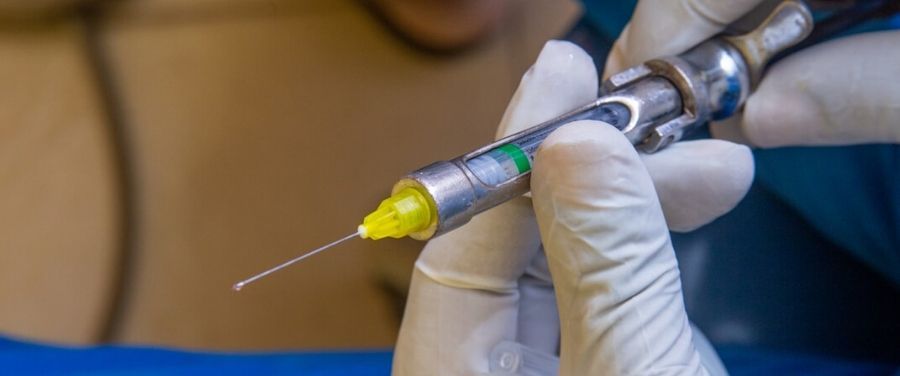OVERVIEW:
Hepatitis A disease can be unpleasant, but it’s not so serious and most of the people make a full recovery within a couple of months. Hepatitis A vaccines are normally used to prevent hepatitis A, a type of liver disease that is caused by the hepatitis A virus (HAV or Hepatovirus A).
Some people, particularly young children, may not have any symptoms of this disease.
HEPATITIS-A VIRUS: FAST FACTS
- HAV was first identified in 1973
- HepA is a viral liver disease that can cause mild to severe illness
- It can be passed on between people or through contaminated food or water
- A person can have Hepatitis A virus without showing its symptoms
- Hepatitis A vaccines are the most effective ways to combat the disease
WHAT CAUSES HEPATITIS-A?
A person with Hepatitis A virus will excrete the virus in the feces or stool. It can be passed on when an uninfected person consumes water or food that has been contaminated with the feces of an infected person.
Hepatitis A infection can be mild with no symptoms or a serious illness that can rarely cause liver failure and death. Getting vaccinated against the hepatitis A virus is the best way to prevent these problems.
HOW TO DIAGNOSE HEPATITIS-A DISEASE?
A blood test can confirm an infection with Hepatitis A virus (HAV). Antibodies can detect both acute infection and a past infection. An unpleasant infection with Hepatitis A virus (HAV) should be reported to local public health authorities to help prevent the disease from spreading further.
HOW TO CURE HEPATITIS-A?
There is no specific treatment of Hepatitis A disease, but a supportive therapy can improve the comfort levels and prevent the complications such as exhaustion and dehydration. This includes —
- Avoiding alcohol
- Rest, with time off work
- Replenishing nutrition and fluids
- Taking over-the-counter (OTC) pain relievers (if necessary)
Patients with significant nausea and vomiting may be admitted to the hospital for intravenous (IV) fluids.
There are no complications and most of the people get recover fully. Around 85 percent people infected with hepatitis A virus (HAV) get recover fully within 3 months, and most people have complete recovery by 6 months.
HEPATITIS-A VACCINATION:
Hepatitis A vaccination works by stimulating the body to produce antibodies, which are basically the proteins that will fight and kill the virus of hepatitis A disease. Hepatitis A vaccine was approved in 2005. Havrix and Vaqta are the brand names, available for hepatitis a vaccine-injection.
Children should receive a set of HepA vaccine series starting at 12 to 23 months, separate the 2 doses by 6 to 18 months. Children who’ve received 1 dose of HepA vaccine before age 24 months should receive a second dose 6 to 18 months after the first dose.

For all persons aged 2 years and older who hasn’t already received the HepA vaccine series, 2 doses of HepA vaccine separated by 6 to 18 months can be administered if immunity against hepatitis A virus infection is desired.
Hepatitis A Vaccination is recommended for any person seeking protection from hepatitis A virus infection and persons with any one of the following indications —
- Men who’ve sex with men and people who use injection or non injection illicit drugs
- Persons working with HAV infected primates or with HAV in a research laboratory setting
- Persons with chronic liver disease and persons who receive clotting factor concentrates
- Persons traveling to or working in nations that have high or inter mediate endemicity of hepatitis A
- Unvaccinated persons who expect close personal contact with an international adoptee throughout the first sixty days after arrival in the US from a country with high or intermediate endemicity
The first dose of the 2 dose hepatitis A vaccine series should be administered as soon as adoption is planned, ideally 2 or more weeks before the arrival of the adoptee. Single antigen vaccine formulations should be administered in a 2 dose program at either 0 and 6 to twelve months, or 0 and 6 to 18 months.
Both vaccines are inactivated and have age based dosing schedules. They’re approved for people aged twelve months and older. An inactivated hepatitis A and B combination vaccine, Twinrix, was licensed in the year 2001 for persons older than 18 years. Twinrix can be used on an accelerated schedule for persons susceptible to hepatitis A and B who’re planning imminent travel to endemic areas.
The hepatitis A vaccine shouldn’t be given to patients who’ve had a severe allergic reaction following a previous vaccine dose or to a vaccine component. Vaqta shouldn’t be given to subjects with a neomycin allergy. The tip caps of prefilled syringes for Havrix might contain natural rubber latex, patients allergic to latex should be given Vaqta with caution. A vaccine, like any medicine, could possibly cause severe problems, like severe allergy.
WHAT ARE THE SIDE EFFECTS OF HEPATITIS-A VACCINE INJECTION?
Mild side effects include —
- Soreness where the shot was given
- Loss of appetite
- Tiredness
- Headache
Other reported side effects include —
- Allergic reactions
- Belly pain
- Sensitivity to light
- Seizures
- Dizziness
- Taste changes
- Nausea
- Vomiting
- Difficulty sleeping
FINAL WORDS
Hepatitis A virus (HAV) is an acute infection that affects human liver. It can last for few weeks or several months. Getting vaccinated against the hepatitis A virus (HAV) is the best way to prevent these problems. Havrix and Vaqta are the brand names, available for hepatitis a vaccination.
RELATED ARTICLES:
